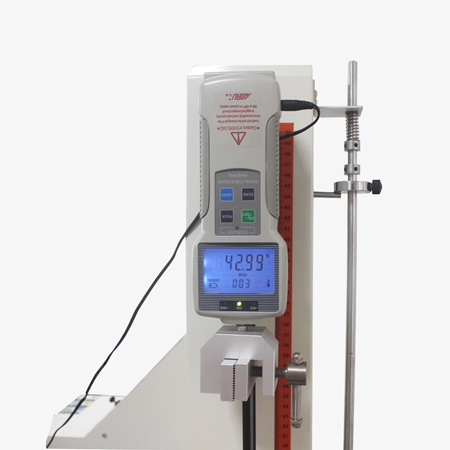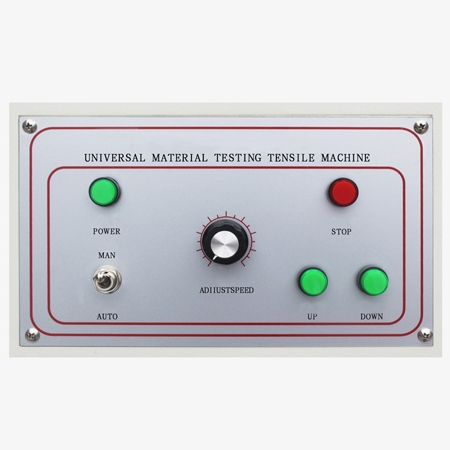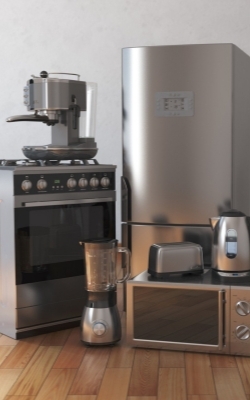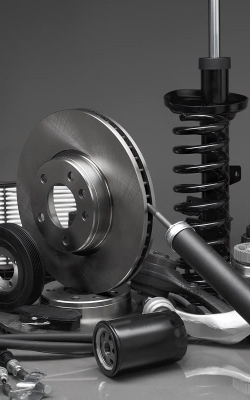The micro tensile testing machine features precise measurement, convenient operation, wide range adaptation to all types of materials, multiple protections for durability and safety, and easy data management.

Precise Control · All-round Adaptation
- The tensile strength tester, with a measurement range of 10 to 500N and a measurement accuracy of up to ±1% (subject to confirmation), ensures accurate and reliable test results to meet the tensile testing requirements of a variety of small samples.
- The tensile strength testing machine can flexibly adjust its tensile speed between 5 and 300mm/min. It can easily handle both slow observation of the material deformation process and quick completion of the test. It is versatile and can meet the requirements of different materials and testing standards.

Safety Escort Durable and Long-lasting
- The tensile testing equipment is equipped with multiple safety protection devices such as emergency stop buttons, overload protection, limit switches, etc., to effectively ensure the safety of operators; The main body of the equipment is made of high-strength steel, and its surface is treated for anti-corrosion, which is wear-resistant and corrosion-resistant, and has a long service life.
- The tensile strength meter features an intuitive digital display electronic system, with test data clearly visible, eliminating the error and inconvenience of traditional pointer readings. The operation interface is simple and easy to understand. Even first-time users can quickly get started, greatly improving the testing efficiency.
Applications
Tensile testing machine is a commonly used material testing equipment, which is used to evaluate the mechanical properties of materials under tension, test their tensile strength, yield strength rate and other mechanical properties, and evaluate the performance of raw materials and finished products. A tensile strength tester can be used in many scenarios, such as new material research and development, metal processing, plastic molding, experiments etc.

Electronic Appliances

Industrial Plastics

Laboratory

Auto Parts
| Model | SISCO-TT-MTTHTLI50 |
| Measurement Capacity Selection | Choose one from 2, 5, 10, or 50 |
| Measurement Accuracy | ±1% |
| Resolution | 1/200000 |
| Test Speed | 0~300 mm/min |
| Effective Travel | 450mm |
| Test Space | 120mm |
| Force Unit | kgf, gf, N, kN, lbf |
| Stress Unit | MPa, kPa, kgf/cm2, lbf/in2 |
| Stop Mode | Upper and lower safety limits, test piece breakpoint sensing |
| Power Supply | Speed-adjustable motor |
| Default Power Supply | 1PH, AC220V, 50/60Hz |
| Packaged Weight | 47kg |
Q1: Does the Test Speed of the Tensile Tester Affect the Test Results?
A1: The test speed of the tensile tester has a significant effect on the test results. Test speed refers to the rate at which the specimen is stretched during the tensile test, usually expressed in millimeters per minute (mm/min) or strain rate (such as percentage change per second).
Q2: How to Choose the Appropriate Test Speed Based on Material Properties?
A2: When choosing the appropriate test speed for material testing, multiple factors need to be considered, including the material's mechanical properties, strain rate sensitivity, test standards, and experimental purpose.
Q3: How to Use a Tensile Tester?
A3: First, prepare the machine to ensure that the machine is in good working condition and check whether all parts are intact, Install the specimen correctly in the fixture of the tester. Set the initial height of the pendulum according to the test standard to ensure that the pendulum has enough energy for the test when it is released. Release the pendulum and let it fall freely and hit the specimen. After the pendulum hits the specimen, record the final position of the pendulum or record the data through the automatic measurement system of the testing machine.
Tips: How to select a tensile testing machine?
During the selection stage, follow clear requirements and avoid "A big horse pulling a small cart".
- Range Matching: Select the range based on the maximum tensile force of the sample (it is recommended that 80%-90% of the maximum tensile force of the sample be within the range). A range that is too large may lead to a decrease in accuracy (especially for small load tests), while a range that is too small may cause overload and damage the equipment.
- Precision Grade: Prioritize high-precision models that meet the standards (typically with an indication error of ≤±1%). Higher precision (such as 0.5 grade) is required in scientific research or quality inspection scenarios.
- Fixture Matching: Select dedicated fixtures based on the material of the sample and shape to prevent unstable clamping or slippage of the sample.
Thank you for buying industrial test and measurement equipment on SISCO.com, all products sold by SISCO and the partner cover a 12 months warranty, effective from the date of receiving the products.
What is covered?
SISCO is responsible for providing free spare parts, and free technical support to assist the customer to repair the defective products until the problem is solved.
What is not covered?
- Product purchased from anyone other than a SISCO store or a SISCO authorized reseller.
- Expendable parts.
- Routine cleaning or normal cosmetic and mechanical wear.
- Damage from misuse, abuse or neglect.
- Damage from use of parts other than SISCO approved.
- Damage from use outside the product’s usage or storage parameters.
- Damage from use of parts not sold by SISCO.
- Damage from modification or incorporation into other products.
- Damage from repair or replacement of warranted parts by a service provider other than a SISCO authorized service provider.
- Damage caused by the application environment not meeting the product usage requirements and the failure to perform preventive maintenance.

